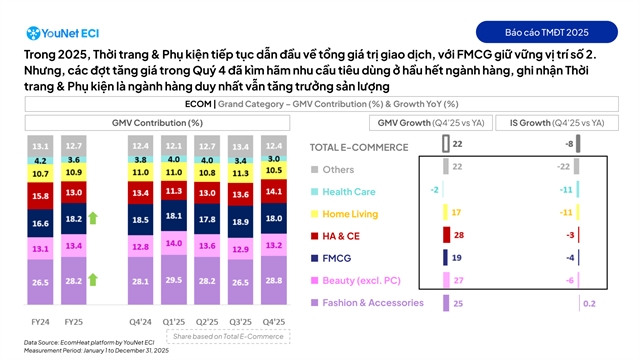 Economy
Economy

 |
| The Ministry of Industry and Trade has issued a plan to reduce business and investment conditions. — VNA/VNS Photo |
HÀ NỘI — The Ministry of Industry and Trade has issued Decision No 987/QĐ-BCT outlining its 2025 plan to review, update, and streamline business investment conditions under its management. The implementation period will run from April to June 2025.
The ministry has set an ambitious goal of cutting at least 30 per cent of unnecessary business requirements currently enforced under valid legal documents and upcoming draft regulations scheduled for submission in 2025.
The plan builds on previous efforts laid out in Decision No 1362/QĐ-BCT dated June 5, 2024, and Proposal No 9414/TTr-BCT dated November 20, 2024, which aimed to simplify business-related regulatory procedures.
According to the plan, any business condition that falls outside the list of conditional business lines regulated by the Law on Investment must be reviewed for removal. Additionally, requirements that do not meet the legal criteria will be assessed for possible narrowing or elimination.
The ministry also aims to remove redundant and unlawful demands such as licences, certificates, letters of confirmation, or approvals that impose unnecessary burdens. Any remaining conditions deemed unreasonable will be simplified — for instance, by reducing the scope of applicability, frequency of implementation, or shortening their validity period.
All regulatory departments under the ministry are tasked with thoroughly reviewing and proposing the removal or simplification of at least 30 per cent of business conditions within their areas of responsibility. These proposals must include justifications for the reductions, estimated compliance costs, the specific legal documents affected, and a detailed implementation timeline. All proposals are to be submitted to the ministry's Legal Department for consolidation.
For units tasked with drafting new legal documents in 2025, the ministry has requested proactive scrutiny of legislative proposals and draft regulations to ensure no new business conditions are introduced, and that unnecessary existing ones are further reduced.
The Legal Department will conduct independent evaluations based on inputs from the ministry’s departments, public feedback, and directives from the Government. Where necessary, the ministry will organise consultations, workshops, or expert reviews with stakeholders, including businesses and regulatory bodies, to ensure comprehensive policy development.
In addition, the Legal Department will be responsible for monitoring and supervising the overall implementation of the plan. It will be supported by the Department of Organisation and Personnel, the Planning Department, the Finance and Enterprise Management Department, and the Office of the Ministry, particularly in matters related to performance assessments, rewards, and budgeting in line with current regulations. — VNS




